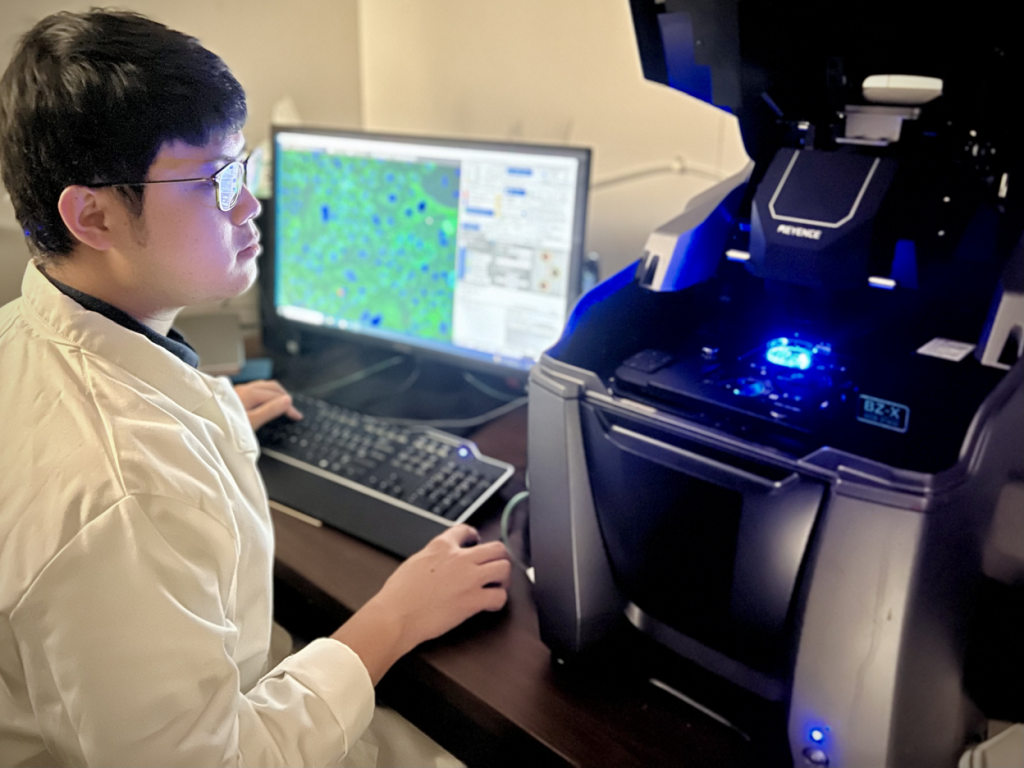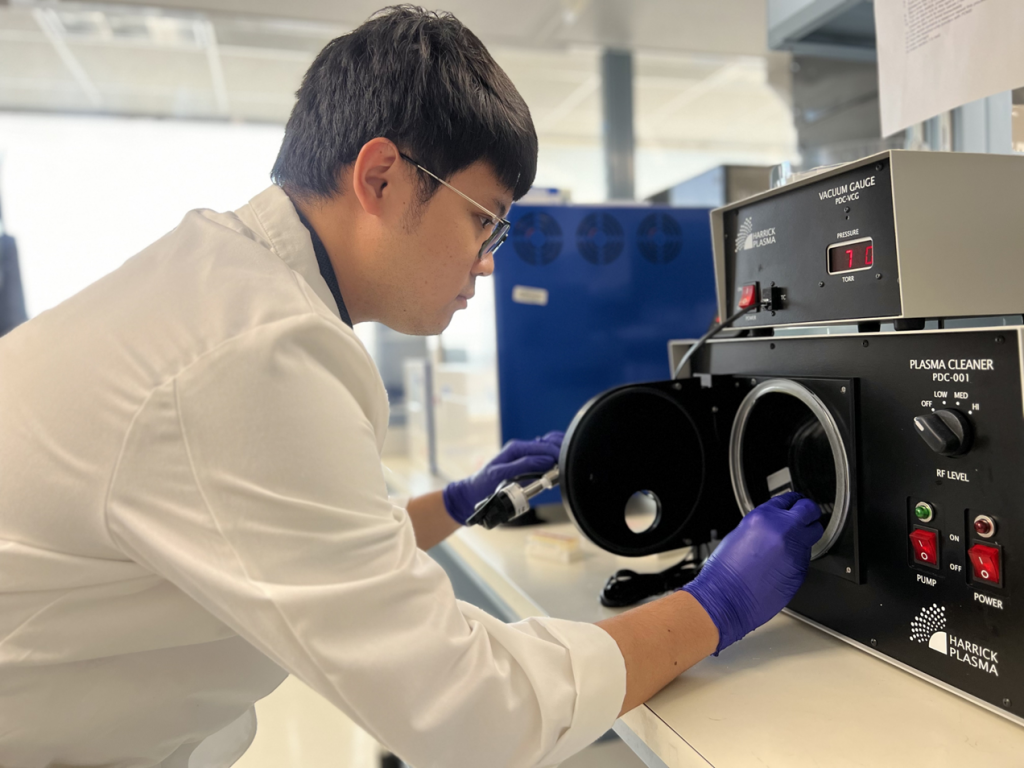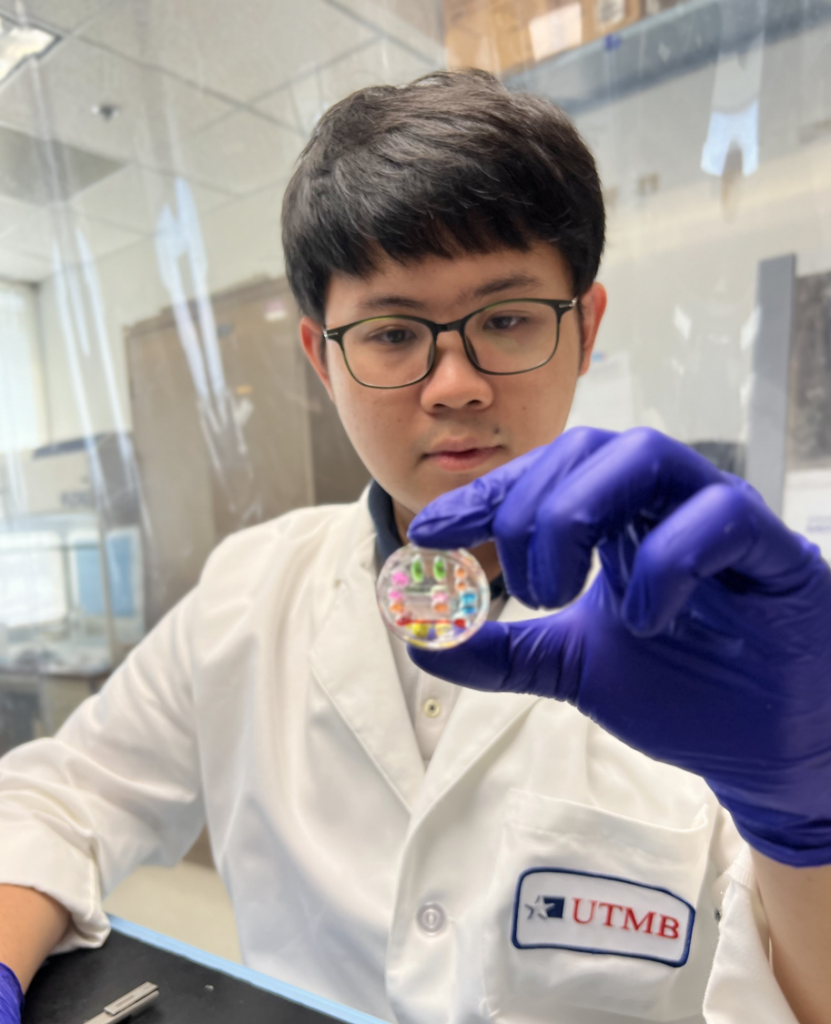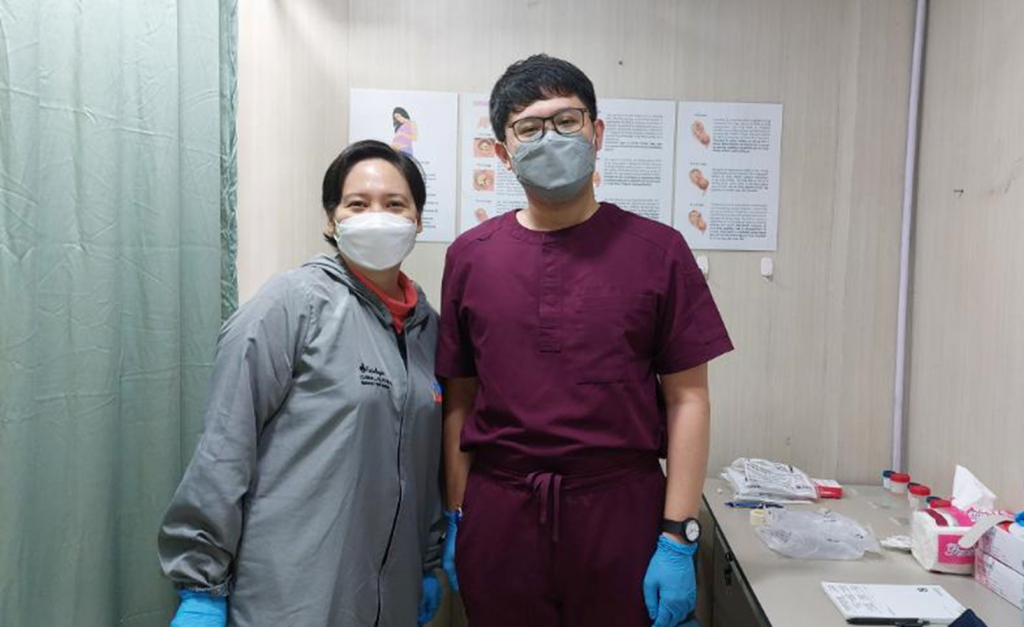
Dr. Ourlad Alzeus Tantengco, a postdoctoral research fellow of the UP College of Medicine Department of Physiology, is the recipient of the National Academy of Science and Technology’s (NAST) 2023 Outstanding Young Scientist (OYS) Award.
Dr. Tantengco finished his MD-PhD in Molecular Medicine at the UPCM.

His research expertise lies in cellular and molecular research related to pregnancy and parturition. His innovative contributions include the development of organ-on-a-chip devices that utilize microfluidic technology to simulate maternal and fetal tissues during pregnancy. These devices have enabled him to investigate ascending infections in the female reproductive tract, offering opportunities for disease modeling, preclinical drug testing, and toxicological studies.
Dr. Tantengco’s research extends to clinical and epidemiologic studies in infectious and tropical diseases, as well as women’s health. His work and collaborations with other Filipino researchers include papers on the environmental epidemiology of leptospirosis, diagnosis of intestinal schistosomiasis, and identification of microRNA as prognostic biomarkers for hepatic fibrosis in schistosomiasis patients.
These community-based studies have led to the development of diagnostic and prognostic tools for schistosomiasis, while his involvement in studies on cytokine biomarkers for Filipino COVID-19 patients has provided valuable insights into the epidemiology and prognosis of COVID-19.

Among his current research projects, Dr. Tantengco is engaged in a randomized controlled trial aimed at improving diagnostic strategies for ovarian cancer in Filipino women. He has also conducted research on HPV genotypes and genetic mutations associated with cervical cancer in the Philippines. Additionally, he serves as a co-investigator and community physician in a community-based study focused on detecting cervical human papillomavirus infection and sexually transmitted infections among women in the Philippines.
His study on the co-infection of HPV and sexually transmitted infections among cervical cancer patients in the Philippines received the best oral presentation award at the 23rd Biological Sciences Graduate Congress at Chulalongkorn University, Thailand. Furthermore, his research on the role of cervical exosomes in pregnancy earned him the silver award in the poster competition at the American Society for Reproductive Immunology 40th Annual Meeting.

Dr. Tantengco is actively involved in various clinical research projects within the field of maternal-fetal medicine. In addition to his research endeavors, Dr. Tantengco actively engages in teaching and mentoring future physicians and scientists. He has also served as a co-adviser to BS Biology students at the UP Manila and Bulacan State University. In 2022, he established the Medical Informetrics and Science Laboratory, comprising approximately 150 medical students and doctors. He serves on the editorial board of the Pharmacognosy Journal and Obesity Medicine.
Beyond his academic pursuits, Dr. Tantengco has made significant contributions as a health blogger and utilizes his clinical expertise to educate the public about health and diseases. He has created the platforms “Doktor Doktor Lads” and “Kalusugan ng Kababaihan” on Facebook, which have attracted over 340,000 and 24,000 followers, respectively. Through social media, he actively promotes health and combats misinformation by sharing freely accessible health articles written in layperson’s terms.

Source: https://www.upm.edu.ph/node/4270
